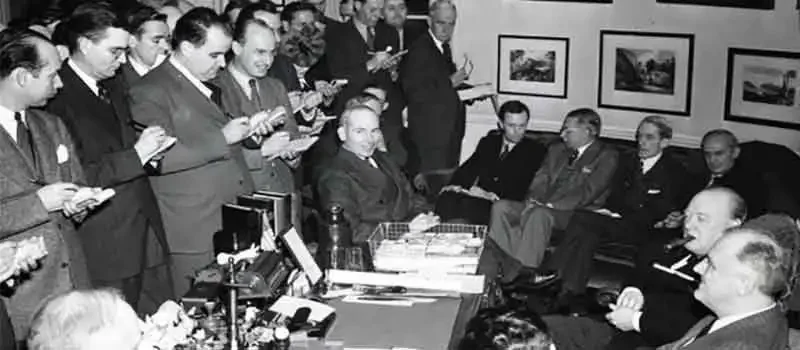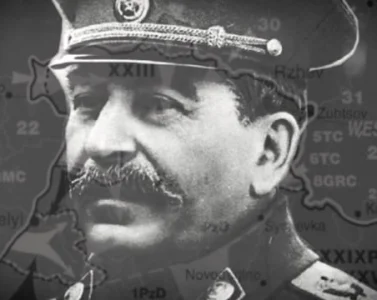- Military History
- Alliances, Treaties, Pacts & Commands
- Arcadia Conference - Dec. 1941 to Jan. 1942

Arcadia Conference - Dec. 1941 to Jan. 1942 One of the greatest impacts of the Arcadia Conference was its effect on American public opinion
Held in Washington from the 22nd of December 1941, to the 14th of January 1942, British Prime Minister Winston S. Churchill proposed the conference to discuss long-range war issues after the Japanese attack on Pearl Harbor. Churchill was accompanied by the British Chiefs of Staff, his Minister of Supply (Lord Beaverbrook) and other top-level advisers.
He lived in the White House during the conference and thus increased his ties of friendship with President Franklin D. Roosevelt. The British came thoroughly prepared because they had been in the war for over two years and therefore were more organized than the Americans, also because the outcome of the conference meant so much to them. They feared that the United States might make the battle against Japan her priority, despite FDR's oft-repeated statement that Germany was the principal enemy. Churchill hoped to ensure priority for the war against Germany and the promise of continued American aid to Britain.
The Joint Declaration, drafted by the U.S. State Department and discussed in the cabinet before Churchill's arrival, was the primary political product of the conference. Although only the United States and Great Britain (in consultation with Russia) had really discussed this document, 26 nations had signed it by the 2nd of January 1942. These nations pledged themselves to use their full resources against the Axis until it was defeated, to coordinate their efforts and to continue the war together, making no separate peace. The United States was the principal force behind the declaration, for she had the freedom to say when and how she would fight while the other nations, being already committed, had no such discretion but depended on America for support.
The term "the Big Four" (the United States, the United Kingdom, Russia and China) was first coined in connection with this declaration, since these were the initial signatories, followed by 22 other nations. France was not included because of problems involving the status of the Free French. The United States and Britain undoubtedly took this document more seriously as an article of future international relations than did the other signatories. The British secured American confirmation on a priority for the war against Germany, which was in fact already the U.S. plan and the promise of continued American aid. In addition, the United States agreed to study the British proposal for a landing in French North Africa, given the code name Gymnast.

Gen. George C. Marshall, U.S. Chief of Staff, argued that there should be one supreme commander in charge of each area of operations, and this concept prevailed, as did the creation of a Combined Chiefs of Staff committee. Several combined boards were also to emerge, and two munitions boards, one in Washington and one in London, were created, each to supervise munitions made in the nation of its location. In effect, this meant that America, with by far the greater war production, had effective overall control of munitions allocation and, thus, of war policy, although she never exercised this power unilaterally.
One of the greatest impacts of the Arcadia Conference was its effect on American public opinion. Churchill's long stay in the United States helped promote pro-British attitudes there. Thus, Arcadia was important to the future of American wartime relations with Britain because it gave them a good start. In addition, it contributed to the overhaul of the American domestic war organization based on information gained from the system already developed in Britain.
The Soviet Union's absence from the meeting established a pattern of Soviet independence in part because she was not then at war with Japan. Since U.S. Secretary of State Cordell Hull did not get along well personally with Churchill during the conference, the overall effect was to diminish the influence of Hull and his department on the future conduct of the war.
Arcadia Conference - Dec. 1941 to Jan. 1942 - Quick Facts
- Republic of China
- Russia Soviet Union (1918-92)
- United States
- United Kingdom
Map
- {{#owner}}
- {{#url}} {{#avatarSrc}}
{{name}} {{/url}} {{^url}} {{#avatar}} {{& avatar}} {{/avatar}} {{name}} {{/url}} - {{/owner}} {{#created}}
- {{created}} {{/created}}
























